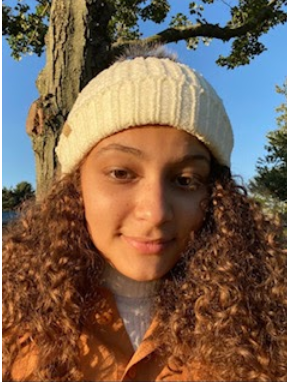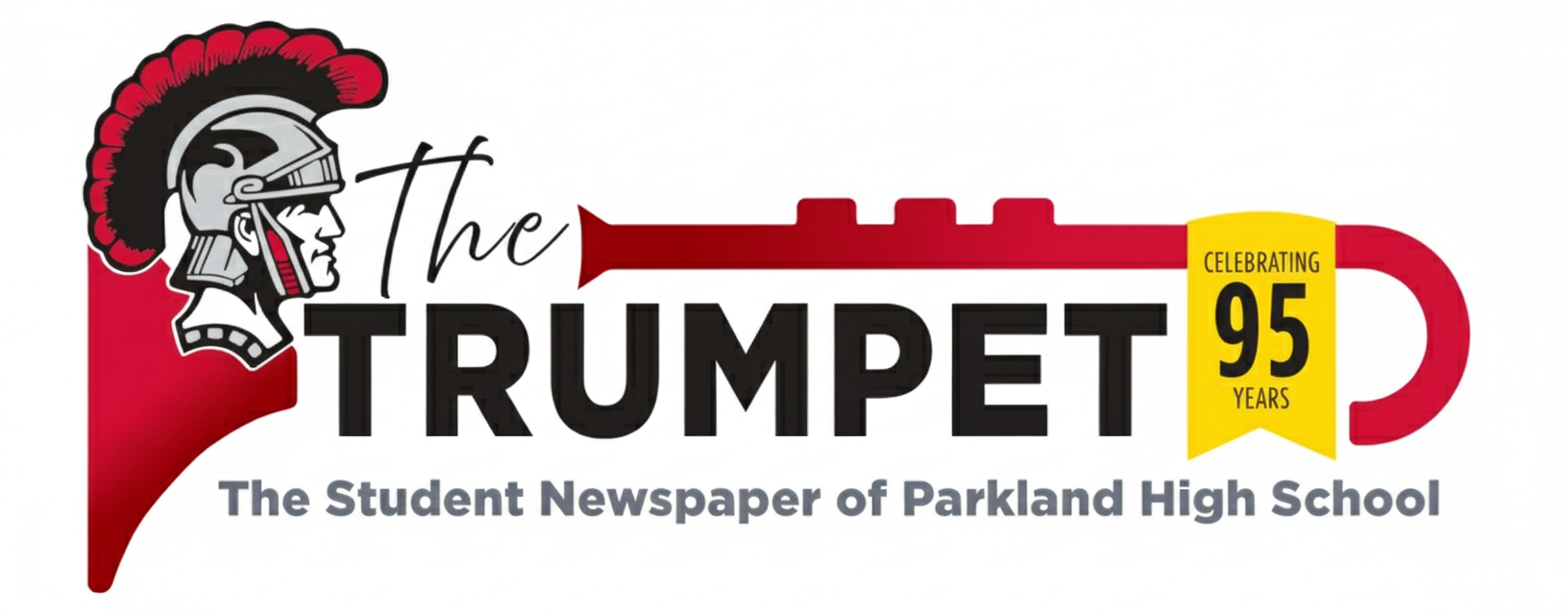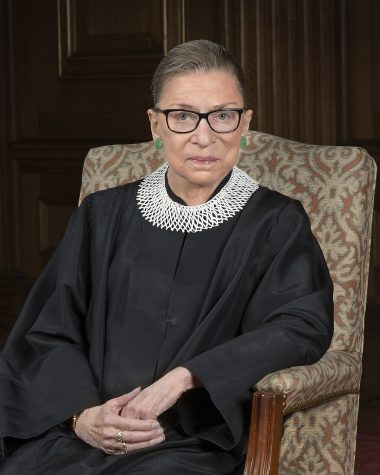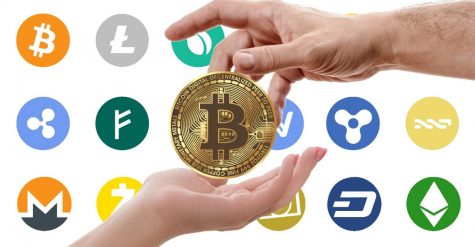Parkland Students Explain the Misconceptions of Feminism

The Feminist movement is crucial to ensuring that women around the world are given their proper rights.
Feminism is a movement that seeks to empower women of all ages and races. However, it isn’t restricted to only women, but also the LGBTQ+ community. Despite this empowering movement, many often see it as a way to degrade men in order to give women rights. The Feminist movement first began in the 19th century with empowering leaders such as Abigail Adams and Elizabeth Cady Stanton. Today, it is recognized as a movement that spreads awareness on domestic abuse, sexual assault, and women’s reproductive rights. Although the movement is recognized as a positive one, many believe that the word “feminism” means to believe that women are better than men. This week, I asked Parkland students, specifically members of the NOW club and Women in S.T.E.M club, about the common misconceptions of feminism and why the movement is so important, especially now.
What’s it like to be a woman?
Senior Ann Marie Saavedra-Torres states, “I believe that being a woman means to strive for the rights that we are granted and being as capable as men in matters of intellectual and physical strength. We shouldn’t allow others to downplay the idea that we are all equal, no matter what gender you are!”
Junior and co-founder of the NOW Club, Emma Carpenetti explains that “being a woman is challenging in a time when there have already been great strides for women’s rights, but when there are still many quieter obstacles to face. Many people don’t believe that feminism is necessary because we can vote, have jobs, etc. But there are so many other problems, like a woman’s right to choose, that is still debated. There are also implicit biases surrounding the abilities of women vs men in many fields. Issues like these are what we fight against.”
Junior Vaishnavi Joshi states that “being a woman is being a powerful, extraordinary force in this world- a world which is constantly trying to repress these qualities. Though it means we have more rights than we did before, there is still much to be done. Our rights are debated, our feelings are invalidated, and our struggles are belittled.”
Junior Jess Bennigner explains how “being a woman is empowering. I am so grateful to have the opportunity to witness all of the amazing things that women are doing every day—the progress women have made so far are simply extraordinary. On the other hand, there is still a long way to go when it comes to basic necessities that women are still fighting for every single day.”
Senior and co-founder of the Women in S.T.E.M club, Layan Suleiman states that “being a woman, in this day and age, is to have the privileges and rights that our predecessor fought for. Almost everything I do in a day, such as going to school or work, are prerogatives that the women of the past centuries did not have the freedom of doing. This, in a sense, is incredibly empowering. When I learn about the history of women’s rights in the US and around the world and just observe how far we’ve come, I can’t help but feel proud of the powerful women who came before me.”
Junior Alena Attieh adds that “being a woman includes exemplifying a strong intrepid character. Many of us women are looked down upon or put to the side because we don’t display the same qualities as men. Being a woman is making sure you are confident in your own identity to diminish the misogyny in today’s society.”
Senior and co-founder of the Women in S.T.E.M club, Susan Ahmed explains how “being a woman is rewarding but can be challenging at times. In the current political climate, our rights are constantly put at risk with every election. To be heard in this world, you must be well-spoken and confident while it is a given that men are to be listened to. It feels like almost everything is a fight, that everything granted to men is fought for by women.”
Sophomore Valeria Mata explains how, “being a woman has its advantages and its disadvantages. Some advantages would be becoming more mature at a young age, and become more aware of your surroundings at a young age. Some disadvantages are paying for feminine products like pads, tampons, and diva cups, this can become a disadvantage for women who can’t afford these feminine products. Another disadvantage is that we are always objectified by men.”
What are some common misconceptions when it comes to feminism?
Ann Marie states, “I think that some misconceptions that people have feminism is that they believe we want to empower men; we want equality between us, not to feel any higher than them. Women have been oppressed for years due to political and religious beliefs, but I do agree that it has changed. Although, there are still many ways women face discrimination.”
Emma Carpenetti explains that, “some people think that feminists hate men, when in reality, we just want to bring attention to injustices that men are privileged enough to not have to think about. It’s been said before, but when women point out misogynistic behaviors in men, we do not mean all men. However, the men who are offended are usually the men who need to be called out for those behaviors. Another misconception is that only women are feminists, but men need feminism too. The patriarchy isn’t good for anyone. For example, it is a patriarchal ideal that mothers should have more responsibility when raising children than fathers. This is why women usually get custody of the children in a divorce instead of the father. Another example is that the patriarchy encourages toxic masculinity, which is a factor in why suicide rates are higher for men.
Vaishnavi Joshi states that, “one of the most common misconceptions when it comes to feminism is the belief that empowering women means disempowering men, when this is not the case. One group can be brought up without another being put down. Many people tend to misinterpret strong phrases such as ‘kill all men’. When feminists make these types of jokes, we do not mean it literally. The phrase does not mean ‘all men are bad’, it means ‘women are powerful enough to survive on their own without depending on men.’”
Jess Benninger adds how she, “thinks feminism is often displayed as something that belittles the validity of men, and this is definitely not the case. Feminism is a movement that seeks equality, and this cannot be done without action taken by men and women alike. If you believe that everyone should be treated equally, regardless of gender identity, then you are a feminist. Based on the name of the movement, some people may think that feminism is based on the idea of women being superior to men, when in reality, we are just fighting for the same basic rights that men have already received.
Senior and founder of MFOL Club, Maya Halma explains how she, “thinks the biggest misconception surrounding feminism is the idea that because we are empowering women, we want women to be more powerful than men. That’s not true. We’re just trying to level the playing field. We’re coming from a place where only men could vote, only men held government positions and only men had powerful jobs. ”
Layan Suleiman states, “I think the biggest misconception, especially among the older generation, is that women, through feminism, are trying to escape all adult responsibility and do whatever they want, whenever they want. This idea is incredibly harmful to the core purpose of the movement: empowering women and promoting equality; not helping them evade responsibility.”
Alena Attieh explains that, “when it comes to feminism, some individuals don’t comprehend that we are fighting for equal rights for people who face the same issues women face. The individuals who are discriminated against are the ones who we feminists are fighting for which is equal rights/treatment. Additionally, we are not trying to “outdo” or make men seem less powerful than women, feminists want women to be equal to men, which means demanding the same pay, not being ignored just because women are found in a “male dominated” career path or activity.
Susan Ahmed adds how she, “believes the biggest misconception about feminism is that everyone who fights for equal rights is “loud and annoying” and only does so to be different, or for the sake of arguing. It is also a common misconception that women want to be greater than or valued more than men when in reality we strive for equal rights and opportunities.
Valeria Mata states how, “a huge misconception about feminism is that people who are feminists ONLY care about women’s rights, which is not true. Being a true feminist is standing up for men, the LGBTQ+community, and every race. It upsets me how people are so quick to judge feminists. Like not only am I fighting for my rights, but I’m also fighting for yours but you are too oblivious to realize it.
Is being a feminist a part of your identity? If so, explain why.
Ann Marie states, “Not only being a feminist, but being an activist towards everyone and wanting equality towards everyone, not mattering their race, ethnicity, gender, sexuality, or religion.”
Emma Carpenetti explains that, “Being a feminist is a part of my identity. It’s hard to ignore misogyny when it is systemically ingrained in many aspects of daily life. It’s hard to ignore it when both presidential candidates have been accused of assault and are still in the positions that they are in today.”
Vaishnavi Joshi states that, “Being a feminist is not only part of my identitity but it plays a role in how I see other people’s identities as well. It’s not just about keeping my own beliefs in check. It’s about trying to dismantle systems which go against my beliefs.”
Jess Benninger adds how she, “believes that everyone, regardless of gender, is equal. Despite being well into the twenty-first century, I am still fighting for equality. So, to put it simply, yes. Being a feminist is a huge part of my identity. Another aspect of this that I would like to call attention to is being a woman involved in higher level STEM classes. I have noticed clear displays of sexism through acts of favoritism and blatant disregard to women throughout every single one of my science courses since my freshman year, and it’s something that should be talked about more.”
Junior Natasha Tretter states, “For sure. Being a feminist is a part of my identity in more ways than one. I advocate this mainly because it allows me to view the world not just how it is currently, but what it can become. Nothing should put people at a disadvantage in regards to who they are and what they stand for as a human being. That is what we are, that is what everyone is, a human being. Women put themselves down all the time, but for what? Absolutely nothing.”
Layan Suleiman states, “People will often tell you to be wary of what you chose to label yourself because of the misconceptions that come with those labels. However, at the core of feminism are all of the beliefs I agree with and advocate for. So yes, being a feminist is a large part of my identity. I mean, what woman wouldn’t want to be respected and treated equally to a man?”

Alena Attieh explains that, “Being a feminist is a big factor when it comes to my identity. Making sure that not only women, but individuals of different races, religions, sexualities, ethnicities, etc are being treated equally and fairly. I am currently a woman in STEM and I take an engineering course. Engineering is something I want to pursue in the future, but I am afraid that once it comes to college that colleges won’t accept me because of my career path. Seeing that only 13% of women in the country are certified engineers, makes me scared for future generations to come. Hopefully, because of my strong, feminist identity, I can make the percent increase due to my involvement in STEM. I want to inspire young girls, as well as women my age and older, to not be afraid to speak up about issues that they see as sexist.”
Susan Ahmed adds how she, “Being a feminist is 110% a part of my identity. It represents my strive for equality, not only for women but for all races, genders, sexual orientations, ethnicities, etc. It demonstrates my own self respect and confidence.”
Valeria Mata states how, “Being a feminist is definitly part of my ideneity. Especially in this day in age with RBG’s passing. With her passing it means that our reproductive rights are in more danger than they ever have been since 1916. No one should ever have to worry about being able to get an abortion because they either dont have enough funds to support that baby or they are carrying a baby of their rapist. And lastly in public/private schools women are meant to follow a 10x stricker dress code than men this is just blatant sexism.”
What do people think when they hear the word feminist/feminism?
Ann Marie states, “It really depends on who the person is. There are many views and misconceptions about this topic, but it only matters if one is willing to do their research and listen to the side that’s been suffering.”
Emma Carpenetti explains that, “I think people who don’t really know what feminism is get defensive when it is mentioned. When I was younger and didn’t really know much about it, I thought feminists were too dramatic. After hearing about more and more instances where women were treated unfairly, I realized that women (and men) should be angry. Now, feminists like me love when we hear about feminism and its accomplishments, but we don’t like it when it’s used to portray feminism in a bad light.”
Vaishnavi Joshi states that, “It all depends on the person. Some people are immediately put off by the word “feminism” while others embrace it.”
Jess Benninger adds how she, “Some, like myself, find the word to be inspiring. Unfortunately, the majority may associate the term “feminism” negatively, probably because they are unaware of what the movement actually stands for and why it should be important to every person in the world.”
Maya Halma states, “I think it depends on who you ask. When I think of feminism, I think of fighting for equal rights and the unity of women empowering each other. I can’t speak for men necessarily, but I think some men–but definitely not all–get on the defensive when women are mentioned because they see it as a threat to their power or an attack on themselves. Overall, I think many people are under the misconception that feminism means female power, when it really just means increasing our power in order to be equal with men.
Susan Ahmed adds how she, “When I hear the word feminism or feminist, I get excited and I think of confident women furthering the rights of their fellow women all across the world. Others may envision public figures such as malala, when a feminist can be anyone you see, anyone you see on the street. Others may associate feminism with “annoying and loud” women because many people have been conditioned to believe women who stand up for themselves are not “proper ladies” and should not speak out against injustice and inequality.”
Valeria Mata states how, “It all depends on their political viewpoints. If they are far right they would think that feminists are just women wanting to have more power and rights over men which is 100% incorrect. What we are fighting for is that women be treated the same as men and the equality of all sexes. But if they are leftists or liberals or maybe even democrats they would obviously think of what I just said in the last 2 sentences.”
What do you think are the most important issues concerning women today?
Ann Marie states, “I believe that some issues would be the not knowing of who will be the new Supreme Court leader, as it is a threat to Planned Parenthood. Another issue would be the problems that WOC are facing, that is why feminism has to be intersectional, so everyone feels included. There are also other problems such as the insufficient menstrual care needs and a wage gap that is still very prominent.”
Emma Carpenetti explains that, “Some issues facing women today include the lack of women (and specifically women of color) in positions of power, our right to choose being debated, discrimination against women in the workforce/gender pay gap, the politicization of LGBTQ+ rights, and the r*pe epidemic. Some of these issues affect men too, which is why everyone needs feminism.”

Vaishnavi Joshi states that, “The most important issues concerning women today are abortion, rape, pay gap, rights for BIPOC and LGBT+ women, etc. There are other more vague issues such as suppressing opinions or feelings in an effort to avoid seeming “emotional” in political environments, being shamed for when/how/where/etc. they choose (or not choose) to give birth, and many more issues. The first step in solving these issues is talking about them and I’m so glad this club is taking that step!”
Jess Benninger adds how she, “One of the most important issues concerning women today is representation, specifically of women in the LGBTQ+ and women of color. While there have been many significant “wins” for women in the past few decades, they have mostly been for white women. Until all women receive the same rights and representation, we will never truly be equal.”
Maya Halma states, “the attack on women’s reproductive rights is one of the most dangerous women’s issues today. If Amy Coney Barrett is appointed to the Supreme Court, women could lose the right to an abortion, which could place a financial burden and serious, deadly health implications on many women. Additionally, attacks on Planned Parenthood threaten women’s access to free contraception, which is a bit ironic since it prevents the need for an abortion.”

Susan Ahmed adds how she, “In the current political climate, women’s basic rights are being decided at the hands of male government figures. Reproductive rights such as contraceptives, abortion, etc are all at stake with the upcoming election. Along with equal rights, feminism also fights to instill confidence in girls across the world which is why I believe another issue facing women today is the skewed beauty standard. Women are expected to have unrealistic figures, and with social media becoming a large part of young women’s lives, younger girls are exposed to these unrealistic standards early on instilling these ideas in their impressionable minds.
Valeria Mata: Some of the most important issues concerning women today are Amy Coney Barrett hazardous decisions on Women’s Reproductive rights, the LGBTQ+ community’s marriage rights being taken away, and women being forced into a stereotypical lifestyle, by this I am saying that women today are almost being put on this pedestal and objectified by men telling them how to dress and how to act.”
Your donation will support the student journalists of Parkland High School. Your contribution will allow us to purchase equipment and cover our annual website hosting and printing costs.





